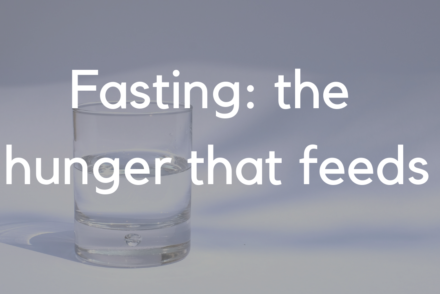Which is more holy; working hard or going to a party to laugh, enjoy friends, and eat a bunch of delicious food?
The protestant work ethic that is so deeply ingrained in much of Christian culture declares you should choose to get your work done over the dinner party. But do our cultural assumptions align with God’s truth?
Work Ethics
In Luke 14 Jesus is sitting at a dinner with a bunch of religious leaders, leaders who were well versed in doing the good works that God’s law had laid out for them. In the midst of the conversation Jesus tells a parable to rebuke to these leaders. It’s a parable that our hard-work-first selves would do well to listen to.
When one of those who reclined at table with him heard these things, he said to him, “Blessed is everyone who will eat bread in the kingdom of God!” But he said to him, “A man once gave a great banquet and invited many. And at the time for the banquet he sent his servant to say to those who had been invited, ‘Come, for everything is now ready.’ But they all alike began to make excuses.
The first said to him, ‘I have bought a field, and I must go out and see it. Please have me excused.’ And another said, ‘I have bought five yoke of oxen, and I go to examine them. Please have me excused.’ And another said, ‘I have married a wife, and therefore I cannot come.’ So the servant came and reported these things to his master.
Then the master of the house became angry and said to his servant, ‘Go out quickly to the streets and lanes of the city, and bring in the poor and crippled and blind and lame.’ And the servant said, ‘Sir, what you commanded has been done, and still there is room.’ And the master said to the servant, ‘Go out to the highways and hedges and compel people to come in, that my house may be filled. For I tell you, none of those men who were invited shall taste my banquet.’”
Luke 14:12-24
Good Excuses and Good Work
Jesus intends this brief story as a rebuke. But what exactly is he rebuking? The host invites these people to a party, “A great banquet,” asking them to come and drink, eat, most likely dance, and spend their evening in enjoyment. Those who had been invited all have excuses about why they aren’t able to come.
Growing up the general feeling I got about this passage was that those making excuses were bad people, greedy for financial gain or something. But when you read the above text attentively you see they each have thoroughly reasonable, even honorable, excuses. They all have important work that needs to be done, important commitments to keep. “I just bought a business and need to check in to make sure everything is in order.” “I have a couple new employees that need to be trained for their position.” “My wife and I are about to leave for our honeymoon, sorry, but I need to prioritize my family right now.”
How mature and dependable these people are! They’re denying themselves pleasure and indulgence for the sake of getting work done. They’re saying no to rich food and drink and fun because there’s important tasks to accomplish. Clearly they have their priorities right.
Right?
The priority of Holy Parties
Jesus doesn’t think so. In his story the master is angry, not pleased, at the studiousness of those he invited to the party. Those who excuse themselves from the party are abdicating their invitation, insulting the master and saying that their relationship with him is less valuable than their to-do list.
My friends, catch this. There are times when it is more holy to party than it is to work. There are times where feasting with friends is more righteous than doing “good deeds”. There are seasons where it is more sanctifying to rest than it is to accomplish.
Like Jesus to Martha, this parable says to us that the best thing is to accept our Savior’s invitation and enjoy our relationship with him. Set aside the work and sit down to enjoy a glass of wine with the Master. He’s invited you in, not because he has things for you to do but because he wants you at his party. He wants you to be with him and he with you.
with the Blind and Lame
In our parable, the host turns his invitation to the cripple and the blind in response to the excuses of the hard-working. He chooses to invite those who were, in the Hebrew culture at that time, unable to do any work beyond perhaps begging at the temple gates. God trades the high-capacity producer for the humble blind beggar simply because the beggar is available.
Let’s not deceive ourselves into thinking that we’re somehow the big shots who make the real difference in this world. Set aside your self importance and the importance of the work you do. It doesn’t matter if the task before you is cleaning toilets, counseling failing marriages, or preaching to ten thousand people. What really matters is that we’ve been invited to the master’s banquet. He wants us at his table – blind, cripple, lame, and poor. It’s out of that feasting in the Master’s presence that we are healed, restored, and empowered to out and transform the world with the Gospel.
The Gospel is about a banquet. You’ve been invited to a party. It’s easy with our missional bent and great commission passion to miss the fact that it’s a feast we’ve been invited to, not a working lunch. Make space in your life for that feasting. Don’t fill it so full with good works that they become a reason to excuse yourself from the party.
Sometimes the most important, God-glorifying thing you can do is sit down, enjoy a delicious dinner, and laugh with friends in the presence of the Lord.





No Comments